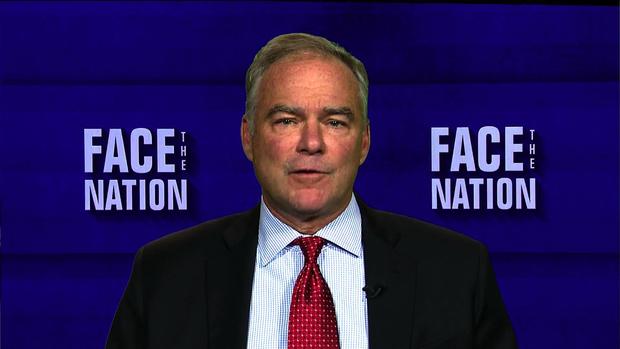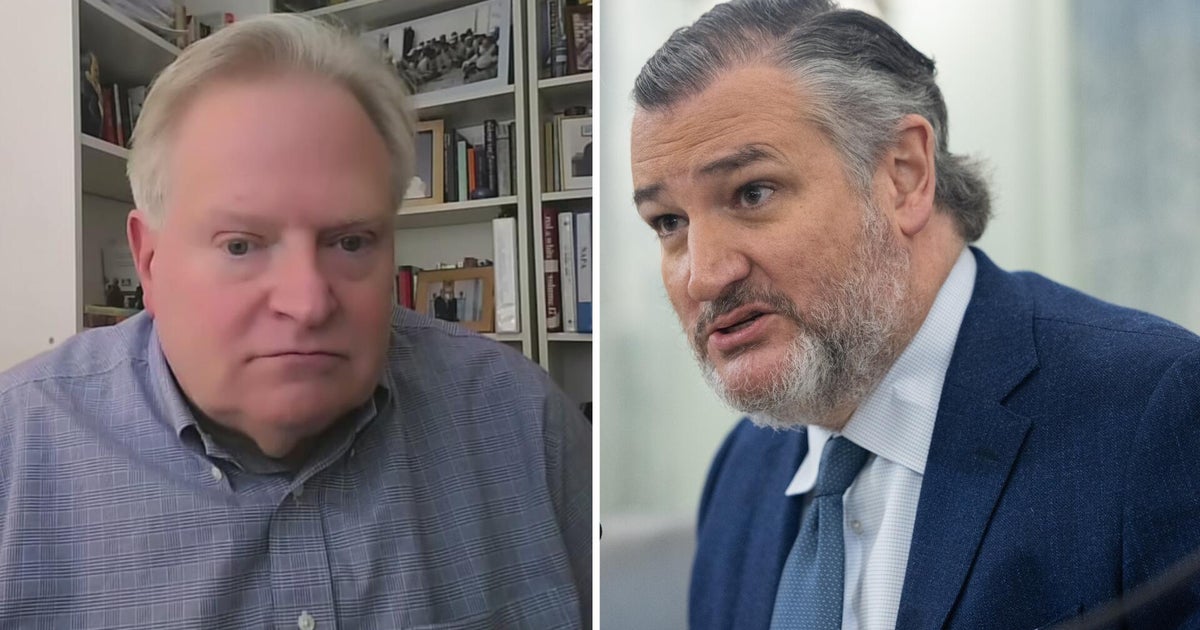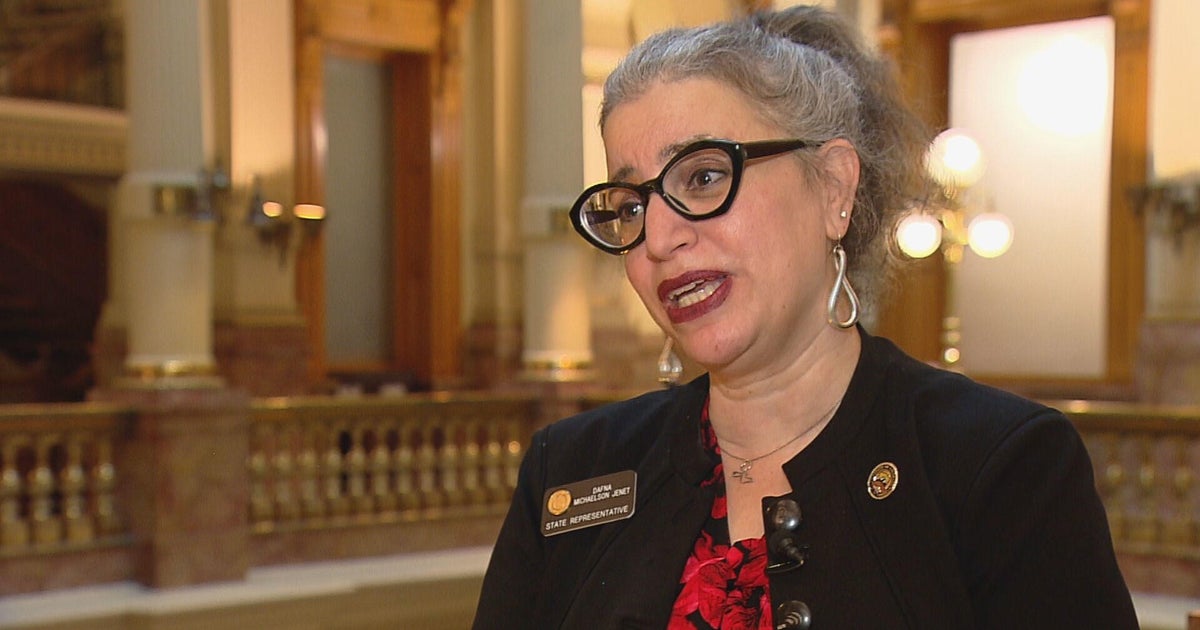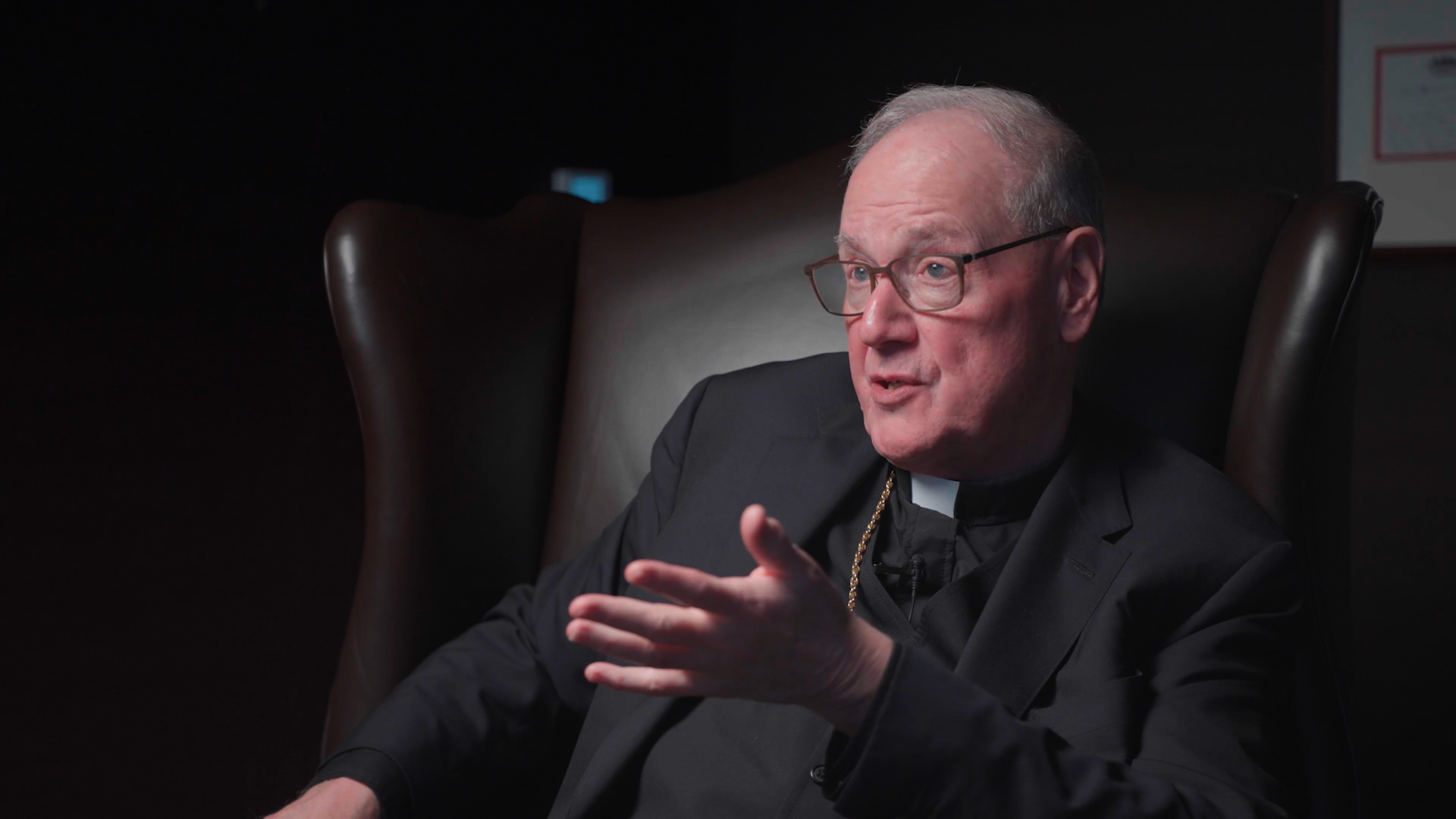Transcript: Sen. Tim Kaine on "Face the Nation," August 20, 2017
While President Donald Trump took to Twitter to denounce the removal of Confederate monuments and statues, Sen. Tim Kaine, D-Virginia, announced that he's joining the push to remove such statues from the Capitol.
On Sunday, "Face the Nation" sat down with Kaine -- the former governor of Virginia and former mayor of Richmond, the capital of the Confederacy -- to discuss the debate over removing Confederate monuments, and more.
What follows is a transcript of the interview, which aired August 20, 2017, on "Face the Nation."
JOHN DICKERSON: We're joined now by Virginia Democratic Senator Tim Kaine. He's in Richmond. Senator, you were also Governor of Virginia and Mayor of Richmond, a majority African-American city that was also the capital of the Confederacy. From those perspectives, how do you see this debate now over removing Confederate monuments?
TIM KAINE: Well John, first, you know I wouldn't even be a guest on the show this week if it were just about monuments. The reason that we're doing this today is because I went to three funerals this week. So, I am not here this morning because of statues. I am here because people brought violence and hatred and bigotry and murder to my state. And I think I am also here because we have a president who wasn't able to stand up and condemn the indefensible.
JOHN DICKERSON: And yet, we have, in the wake of everything you just described, there is a conversation now about these monuments.
TIM KAINE: Indeed.
JOHN DICKERSON: - about how you take all of the things that have been roiled up by this and try to lower the pressure and work through these issues.
And so, given that, and given that this has moved into a conversation about symbols and history, where do you- what guidance do you have given the moment, and your history, as a governor and a mayor?
TIM KAINE: When I was mayor and governor, we worked on some of these issues, John, in Virginia, because we have some painful scar tissue, obviously. We took down two bridges in Richmond that had been named for Confederate generals and renamed them for civil rights heroes. We put up new statues in our city, one of Abraham Lincoln, who visited Richmond after the fall of the city, and one of Arthur Ashe on Monument Avenue, which had heretofore just been for Confederate generals.
The way we sort of looked at this issue, and I think it's important that we look at it this way, it's not just about subtraction, it also has to be about addition. So, our mayor, Levar Stoney, has convened a commission in Richmond to look at all of the statues and decide whether they should stay or be removed or be reinterpreted. But a point I would also make is let's also talk about whose stories haven't been told and what buildings or monuments we might think about erecting in the future. You went to UVA, you know Virginia well. It's interesting, we're a history-obsessed commonwealth. But why do the four years of the Civil War merit so much more attention in Virginia than 250 years of blood sacrifice by hundreds of thousands of slaves who lived here, who built up our state, who were sold through our state?
JOHN DICKERSON: When you were mayor, you said about a Lee mural, you said, "Much of our history is not pleasant. You can't whitewash it." Do you feel that same way about the Confederate statues in the Capitol?
SENATOR TIM KAINE: You know, in, in, in the Capitol in, in--
JOHN DICKERSON: Washington.
SENATOR TIM KAINE: -- in DC, it's an interesting one, John. You and I know the story. Every state gets two statues to put in Statuary Hall or throughout the Capitol. Just using Virginia as an example. The state gets to choose two people to represent the entire scope of the state's history. Virginia obviously chose George Washington, the father of the country. But the second choice that was made in 1909, and has never been changed, is Robert E. Lee.
I think as you look at the scope of Virginia history here in 2017, and if you want there to be two people to really stand for who Virginia is, why wouldn't you think about Pocahontas who, had she not saved John Smith's life, we wouldn't even be here possibly? Why wouldn't you think about a Barbara Johns, who led a school walkout in Prince Edward County that ultimately became part of the Brown versus Board, desegregation decision?
Why wouldn't you think about Governor Wilder, the grandson of a slave, a decorated Korean War combat veteran, who became the first elected African-American government in the history of the country? I think from 2017 looking backward, I think Virginia could probably do better in the two people that we choose to stand for us in Statuary Hall. And I think a number of the other states can do better as well.
JOHN DICKERSON: Let me ask you about a point the president raised about violence on the left that has been a part of some of these rallies. Does the Democratic Party have any responsibility to call out violence? While it's maybe separate from the issue in Charlottesville, it is also a part of the issue in Charlottesville. What's the Democratic Party's responsibility?
SENATOR TIM KAINE: We should call out violence of any kind. Peacefully protesting is a Constitutional right.
But what the president did this week was suggesting there was some moral equivalence in Charlottesville. And that is outrageous. The president didn't have a hard time when a Somali young man drove a car into a crowd in - at Ohio State in December. He called it an act of terrorism, which it was.
When somebody drove a car into a crowd in Barcelona this week, he jumped on it immediately. It was an act of terrorism. But when this white supremacist drives a car into a crowd of people killing Heather Heyer and injuring scores more and the president says, "There's fine people on both sides," or, "There's violence on both sides," why is he so confused and unclear and unwilling to call out the violent white supremacy that was on such gruesome display in my home state?
JOHN DICKERSON: Let me ask you a quick question about the criticisms of -- during the campaign, Hillary Clinton used the world deplorable to describe the kind of people that you started your remarks by talking about the white supremacists. It overshot the mark, it painted with a broad brush. People felt that she was talking about them. How does the Democratic Party not paint with that broad brush in these conversations that are gonna happen coming up now?
SENATOR TIM KAINE: John, this is a really important question. We ought to throw away all the broad brushes, you know? And we need - we need to be very precise. First, it's really important, you have to condemn the intolerable. When there are people marching through the streets of Charlottesville chanting "blood and soil" from Hitler rallies or, "Jews will not replace us," you can't be polite and kind about that behavior or certainly about murder or violence.
You have to condemn it. But you have to be very specific about what you're condemning. And it is very important to be absolutely clear and condemn what's indefensible. But you have to do it in a way that suggests that you're open to dialogue with people who have different points of view than you do.
JOHN DICKERSON: And very briefly here at the end, you're on the Senate Foreign Relations Committee. The president appears to be making a decision about troops to Afghanistan. Should more troops go there? And what are the U.S. interests in Afghanistan?
SENATOR TIM KAINE: John, I have a high degree of regard for the president's national security team, especially Secretary Mattis, General Dunford, General McMaster. But I will say this. The troop strength question is sort of the cart before the horse. The real question is what is our strategy? And then when you lay out the strategy, then the troop strength question can kind of answer itself.
JOHN DICKERSON: Thank you, Senator Kaine. We'll be back in one minute with deeper analysis on the events in Charlottesville and what they mean for the country.




